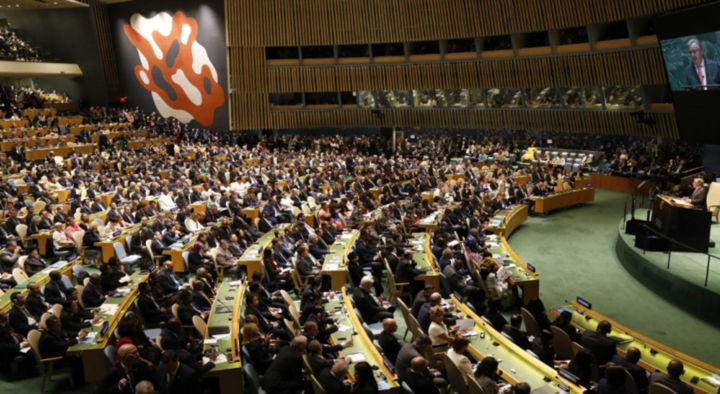In a recently released report on Monday, the United Nations (UN) painted a stark picture of the world’s future, predicting that by 2024, a staggering 300 million people across 72 countries will find themselves in need of urgent humanitarian assistance. The root causes identified by the UN include the devastating impacts of climate change, displacement due to various factors, and escalating conflicts that are pushing vulnerable populations to the brink of famine.
The UN’s call for immediate action is articulated in its Global Humanitarian Overview for 2024. The organization urgently appeals for a substantial funding injection of $46 billion to effectively address the growing humanitarian crises gripping multiple regions across the globe. Among the areas identified as requiring critical assistance are the occupied Palestinian territories, Sudan, and Ukraine, according to reports by Reuter Africa.
Martin Griffiths, the UN’s aid chief, emphasized the imperative to target 181 million out of the projected 300 million individuals in need, underscoring the gravity of the situation. The Office for the Coordination of Humanitarian Affairs (OCHA) has conducted an annual assessment that sheds light on a substantial funding crisis. The report reveals that just over one-third of the $57 billion required for aid provision was secured in the preceding year, highlighting a critical shortfall in meeting the escalating needs on the ground.

Addressing the pressing issue, Griffiths stated, “We will target for our specific needs, for the agencies that I represent, 181 million of those 300.” He characterized this financial gap as the “worst funding shortfall in years,” acknowledging the complexity of scaling down the appeal for 2024 while ensuring that aid agencies adopt a realistic, focused, and resolute approach when evaluating requirements.
The Middle East, particularly Gaza and the West Bank, is anticipated to be a focal point for aid efforts, with Griffiths expressing the expectation that this region will register the highest demand for humanitarian assistance. Simultaneously, he underscored the urgency of directing attention to Ukraine, which is facing desperate times and a looming resurgence of full-scale conflict in the coming year, necessitating substantial aid interventions.
Recognizing the urgency of the situation, Griffiths highlighted that various organizations, including the Red Cross and national Red Cross societies, have initiated their funding appeals to collectively address the widespread humanitarian challenges confronting the global community.
As the world grapples with these interconnected crises, the UN’s appeal for $46 billion stands as a critical call to action. The international community must mobilize resources swiftly and effectively to prevent a humanitarian catastrophe that could affect millions of lives. In the face of the “worst funding shortfall in years,” it is imperative that nations, organizations, and individuals come together to ensure that those in dire need receive the support and assistance required to navigate through these challenging times. The clock is ticking, and the collective response to this urgent plea will undoubtedly shape the trajectory of countless lives in the years to come.
Support InfoStride News' Credible Journalism: Only credible journalism can guarantee a fair, accountable and transparent society, including democracy and government. It involves a lot of efforts and money. We need your support. Click here to Donate
